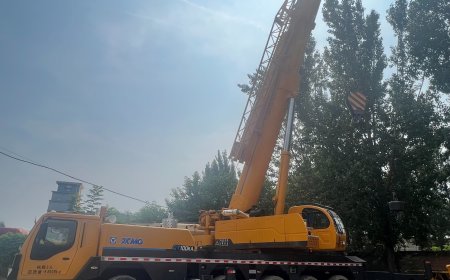Using Data Science for Pricing Precision in Ahmedabad’s Textile Markets
Boost profitability in Ahmedabad’s textile market using data science. Start with a Data Scientist Course in Ahmedabad and upskill for impact.
Ahmedabad, often referred to as the textile capital of India, has been a centre of fabric production and distribution for generations. From spinning mills to sprawling wholesale markets, the city is a critical hub in the countrys textile supply chain. However, as globalisation, competition, and digital transformation reshape the landscape, the traditional pricing models that once governed the market are no longer sufficient. To stay competitive and improve profitability, textile businesses in Ahmedabad are turning to data science for smarter, more accurate pricing strategies. For aspiring professionals, enrolling in a data scientist course in Ahmedabad offers a timely opportunity to contribute to this evolving industry with cutting-edge skills.
Lets explore how data science is being applied in Ahmedabads textile markets to enhance pricing precisionand what this means for the future of retail, wholesale, and manufacturing in the sector.
The Pricing Challenge in the Textile Industry
Pricing in the textile business has always been a complex task. Its influenced by a wide range of variables including raw material costs, market demand, seasonal trends, competition, inventory levels, and buyer negotiation power. Traditionally, these decisions have relied heavily on experience, intuition, and manual calculations.
However, with fluctuations in demand and supply chains, coupled with increasing pressure from e-commerce and global players, even the most seasoned traders are recognising the limitations of traditional approaches. Mispricing can lead to reduced margins, unsold stock, or lost opportunitiesall of which can impact profitability significantly.
This is where data science enters the equation, offering data-driven models that predict optimal prices, improve decision-making, and allow businesses to remain agile and competitive.
How Data Science Enhances Pricing Accuracy
Data science empowers textile businesses where it can effectively process huge amounts of historical as well as real-time data. Using machine learning models and statistical algorithms, pricing models can now:
-
Forecast demand patterns based on past sales, seasons, and festivals
-
Segment customers and tailor pricing based on purchase history and buying behaviour
-
Benchmark competitors by analysing market data and online price listings
For example, a textile wholesaler in Ahmedabad can use predictive analytics to understand how demand for cotton sarees spikes before certain festivals. By analysing previous years' data, weather patterns, and market signals, the business can set prices that maximise both volume and profit without losing customers to competitors.
Similarly, retailers can use clustering algorithms to identify customer groups that are more price-sensitive and design promotional strategies accordingly.
Real-World Applications in Ahmedabads Textile Markets
Several progressive textile businesses in Ahmedabad are already beginning to integrate data science into their operations. Mill owners are using statistical models to calculate cost variations in yarn procurement. Retailers in the bustling markets of Ratanpole and Kalupur are experimenting with digital POS systems that feed sales data into analytics dashboards, allowing real-time pricing adjustments.
Even exporters are leveraging advanced analytics to determine competitive pricing in international markets based on fluctuating exchange rates, demand forecasts, and shipping delays. These tools not only help optimise pricing but also reduce waste and improve inventory turnover.
This growing reliance on data has opened doors for professionals trained in analytics and machine learning. A quality data scientist course prepares individuals to work on such applications by teaching Python, SQL, regression modelling, data visualisation, and machine learning algorithmsall contextualised with business use cases.
Benefits of Data-Driven Pricing
The use of data science in pricing brings several measurable benefits to Ahmedabads textile industry:
-
Increased profit margins: Businesses can identify the most profitable price points while staying competitive.
-
Reduced guesswork: Objective, data-based decisions replace trial-and-error methods.
-
Inventory optimisation: Better forecasting leads to smarter procurement and storage decisions.
-
Customer retention: Tailored offers and personalised pricing improve customer satisfaction and loyalty.
-
Market agility: Businesses can respond faster to changing conditions and trends.
These advantages make data science not just a technical tool, but a strategic asset for forward-thinking textile firms.
Building a Career in Textile Analytics
As the textile industry becomes more data-driven, there is a growing need for professionals who can bridge the gap between domain knowledge and technical expertise. Whether youre from a commerce background, a retail analyst, or an IT graduate, pursuing a data scientist course can help you acquire the skills to thrive in this new age of textile commerce.
Training programs often include hands-on projects, case studies, and live data scenarios from the manufacturing and retail sectors. By the end of the course, learners are equipped to build predictive models, visualise pricing trends, and advise companies on optimising their sales and distribution strategies.
Conclusion
Ahmedabads textile markets are at the cusp of a data revolution. While the city holds deep-rooted traditions in fabric trade and craftsmanship, its now embracing modern tools like data science to stay competitive and agile. Pricing precision, once a game of intuition and experience, is increasingly driven by algorithms and analytics.
For businesses, this shift means improved profitability and operational efficiency. For professionals, it opens up new and exciting roles in a high-impact industry. If youre looking to be part of this transformation, enrolling in a data scientist course in Ahmedabad is the ideal starting point. With the right skills, you can help shape the future of one of Indias most iconic industriesone data point at a time.



























